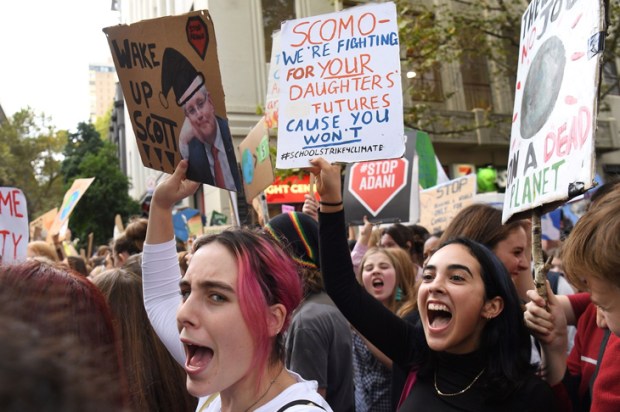The non-lawyer readers of this fine publication may not be aware of a key premise (really it is a trade-off that we are prepared to make) that lies at the heart of the criminal law in the developed common law world – what used to be the pink bits of the world atlas. Often this is referred to as Viscount Sankey’s ‘golden thread’ that runs through the English/Australian/US etc. criminal law. This is the idea that it is for the prosecution to prove guilt and to do so beyond any reasonable doubt; it is not incumbent on the accused to prove anything. Think of this as a consequentialist trade-off – that it is better that a good many guilty people go free rather than that an innocent person be convicted and go to jail. So the burden of proof in criminal trials is premised on an acceptance of this trade-off, as are aspects of the law of evidence (e.g., no self-incrimination).
This seems to me, and I daresay to most others, to be a completely desirable trade-off or core premise to have lying at the heart of one’s criminal justice system. Of course usually we tend to gild the lily as to precisely what the trade-off is. Most of us are prepared to see 10 or 20 or maybe 100 guilty accused go free, rather than that one innocent person go to jail. However, virtually no one is prepared to see a half a million or 300,000 (stop me!) guilty defendants go free, rather than that no innocent person ever be convicted. If that were the bargain you wished to strike then the standard of proof you would demand of the prosecution would be ‘absolute certainty of guilt’, which is probably almost never on offer, and at a minimum would mean convictions were few and far between. So given that our attachment to not convicting the innocent is not ‘absolutist’, we all know that on occasions it must be true that even in well run criminal justice systems that nevertheless it does happen.
It is certainly not the goal of our criminal justice system to put innocent people in jail. Quite the opposite. Rather we do what we reasonably can to avoid it. But it happens. Indeed, it is inevitable that it does. All we can say is that it is never the direct intention that it happen, merely an inevitable side-effect of any criminal justice system administered by fallible humans.
My point, though, is that we demand evidence before punishing people caught up in the criminal justice system and we demand lots of it. We as a society want more than just ‘he probably did it or he might have done it’.
And that takes me to what we’re seeing now around the English-speaking world. I refer to the accusations against individuals of groping, fondling, kissing, demanding sex for job advancement, and the like often dating back decades. Leave aside that some of these accusations are not criminal conduct, some falling barely above the bad date or self-centred bastard category.
But assume they are all conduct worthy of the intervention of the criminal law. My point here is that the mere accusation is triggering the assumption of guilt, the outing, the firing. This is almost the obverse of what we accord to someone accused of murder, rape or armed robbery. Should you say that men and women are genetically different in aptitudes and preferences – which assertion has buckets of empirical evidence, nay proof, behind it – then expect to be pilloried and fired, as happened recently in Silicon Valley. Or were you to get outed in Hollywood by a woman (she stays anonymous, you don’t) who in effect says you were a bad date, and the pundits all say your career is finished.
The pendulum, clearly, has swung too far. Of course we don’t need a criminal standard of proof before firing someone. But some proof would be nice. This applies, too, to the Star Chamber-type Australian Human Rights Commission’s approach not too long ago to the QUT students and to Bill Leak.
The AHRC’s political outlook was such that it appeared to offer banana republic levels of procedural protections to Leak and the QUT trio. Of course to some extent that’s the scope the enabling legislation gives this dreadful body. In a sane world a right of centre political party would go to the wall fighting to repeal our s.18C and to disband the AHRC. Maybe the world’s not sane. Or maybe we don’t have a major right-of-centre political party any more. You decide.
Speaking of bias, consider what we’re learning in the US about the conduct of the FBI, the Dept. of Justice (‘DOJ’) and the former Obama administration. Now it is not yet in any way proven that the Nunes memo contains true facts, though the FBI was allowed to vet it for its truth and thus far has not gainsaid its veracity. Still, the left-of-centre response (which includes all major media outlets bar Fox News, and most definitely includes ‘our’ ABC) is that there is nothing to see here. Before its release these same organs complained that releasing it would bring down civilisation as we know it; now the response is that it’s a wet squib. Personally, if its claims are true then it looks pretty bad to me. The FBI and DOJ go to a court to get a FISA warrant using an anti-Trump dossier purchased from an opposition research team, hired and paid (through intermediaries) by the Clinton campaign team. And the FBI director seems to have known all this, as did his deputy. And the warrant was to bug or monitor a sometime Trump campaign adviser, and indirectly Trump Tower. Oh, and FBI officials purportedly admitted that the FISA warrant request to the judge would not (even could not) have been made without the dossier – the contents of the dossier having not been verified or even much scrutinised.
Now leave aside the incestuous anti-Trump relationships one now learns existed in the FBI. Ask yourself this. Would the newspapers and TV stations that to this day still pat themselves on the back for bravely exposing Watergate, would they be downplaying all this if it were the other way round politically? If Republican-leaning agents and Republican-paid research had achieved the bugging of Democrats, any bets on how the mainstream media would be reacting? Seems to me that to be consistent you either need to say Watergate was not that big a deal (which is a perfectly plausible view, by the way) and so this isn’t either. Or you go to the wall for both. But don’t hold your breath for that sort of balance.
The reason we’re living in such partisan times is because it’s ever easier for those of us on the right side of politics to feel that double standards are at work throughout the media, top tiers of the bureaucracy, government tribunals… you name it.
Got something to add? Join the discussion and comment below.
Get 10 issues for just $10
Subscribe to The Spectator Australia today for the next 10 magazine issues, plus full online access, for just $10.
You might disagree with half of it, but you’ll enjoy reading all of it. Try your first month for free, then just $2 a week for the remainder of your first year.














Comments
Don't miss out
Join the conversation with other Spectator Australia readers. Subscribe to leave a comment.
SUBSCRIBEAlready a subscriber? Log in